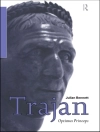How the death of a fifteen-year-old girl aboard the slave ship Recovery shook the British establishment.
On 2 April 1792, John Kimber, captain of the Bristol slave ship
Recovery, was denounced in the House of Commons by William Wilberforce for flogging a fifteen-year-old African girl to death. The story, caricatured in a contemporary Isaac Cruikshank print, raced across newspapers in Britain and Ireland and was even reported in America. Soon after, Kimber was indicted for murder – but in a trial lasting just under five hours, he was found not guilty.
This book is a micro-history of this important trial, reconstructing it from accounts of what was said in court and setting it in the context of pro- and anti-slavery movements. Rogers considers contemporary questions of culpability, the use and abuse of evidence, and why Kimber was criminally indicted for murder at a time when kidnapped Africans were generally regarded as ‘cargo’. Importantly, the book also looks at the role of sailors in the abolition debate: both in bringing the horrors of the slave trade to public notice and as straw-men for slavery advocates, who excused the treatment of enslaved people by comparing it to punishments meted out to sailors and soldiers.
The final chapter addresses the question of whether the slave-trade archive can adequately recover the experience of being enslaved.
NICHOLAS ROGERS is Distinguished Research Professor Emeritus in the Department of History at York University, Toronto.
Table of Content
Preface
Ship shape, Bristol fashion
The Accusation
The Man and His Crew
The Trial
Abolition and Revolution
Afterthoughts
Appendix
Bibliography
About the author
NICHOLAS ROGERS is Distinguished Research Professor Emeritus in History at York University, Toronto and author of Murder on the Middle Passage: The Trial of Captain Kimber (Boydell, 2020) and (with Steve Poole) of Bristol from Below; Law, Authority and Protest in a Georgian City (Boydell, 2017).












